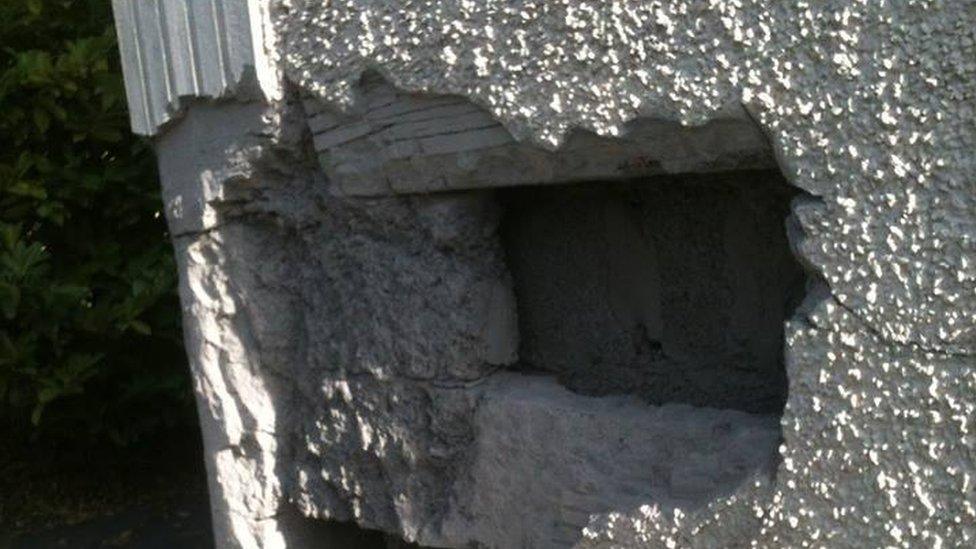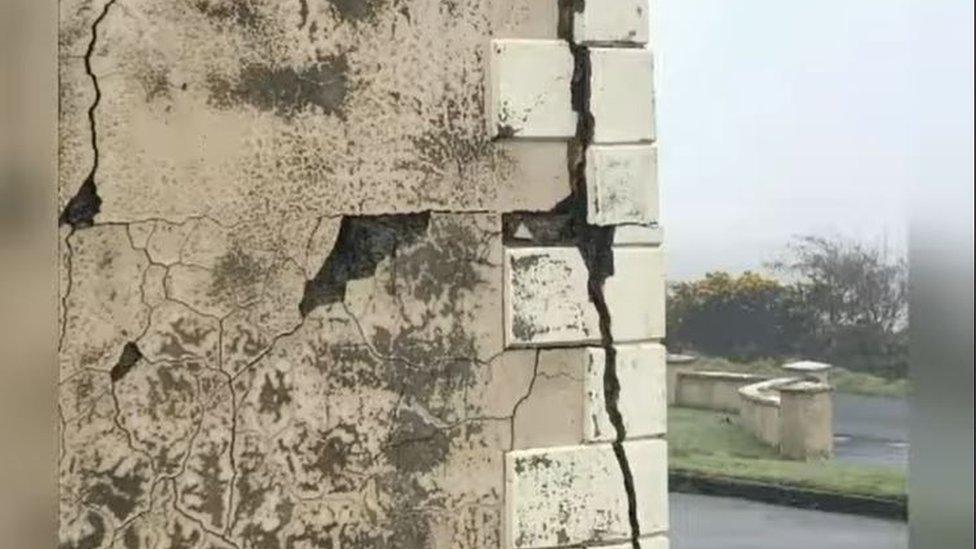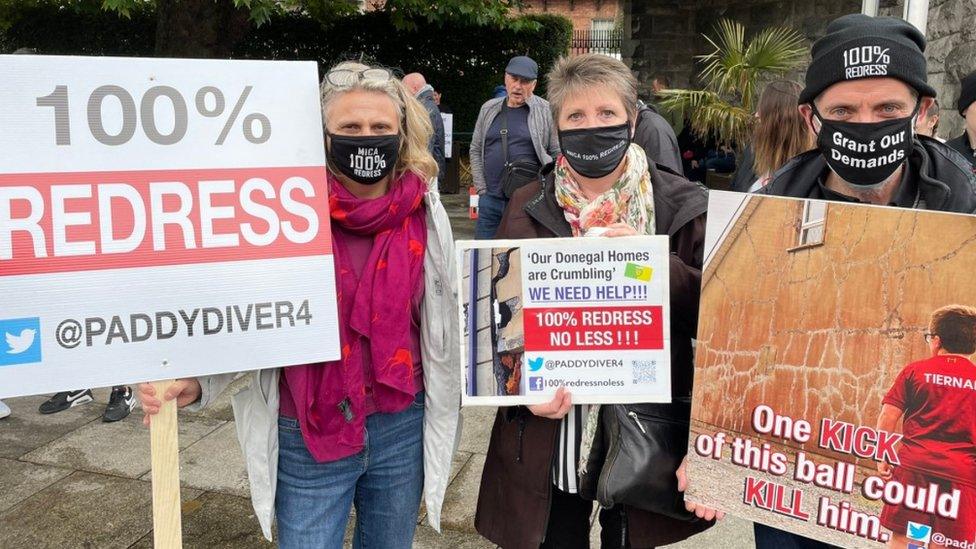Mica: Crumbling homes being counted in Derry and Strabane
- Published

Houses in the Republic of Ireland have been crumbling due to blocks containing high levels of the mineral Mica
A tally of houses crumbling due to being affected by the mineral mica is being drawn up by a Northern Ireland council.
In the Republic of Ireland thousands of homes have defects because of the mineral.
But it is unclear how many affected homes there are in Northern Ireland.
Derry City and Strabane District Council says it hopes to determine the number of crumbling homes in the north west.
A spokesperson said it would allow the council to find out how many properties had been tested and found to be affected.
They said this would allow the council to explore the need for expanding the compensation scheme to include people living in the council area.
In the Republic of Ireland, about 6,000 homes affected by mica and another mineral - pyrite - have been identified, mostly in counties Mayo and Donegal - a county that borders the Derry and Strabane council area.
The minerals absorb water, which can cause walls to crack and crumble.
In November, a law firm representing mica-affected homeowners in the Republic of Ireland has said there could also be hundreds of cases in Northern Ireland.
Fixing crumbling Londonderry home 'could cost family £100k'
At that time Danny and Kate Rafferty, from Beragh Hill Road in Londonderry, estimated it could cost more than £100,000 to fix their home after mica was detected.
That prompted calls from Foyle MP Colum Eastwood to ensure any homeowner in Northern Ireland affected by defective blocks should be protected as "a matter of urgency".
The council said anyone whose property had been tested had the presence of mica confirmed should contact the local authority.
Following years of campaigning in the Republic of Ireland, an expert panel was set up in 2016 to investigate problems with homes affected.
In 2019, the Irish government approved a €20m (£17.2m) repair scheme.
But many homeowners said that the scheme was not fit for purpose.
In 2021, a compensation scheme for homeowners affected by crumbling blocks was announced by ministers.
In September 2022, a 10% levy on concrete blocks was announced as part of the Irish government's budget.
- Published1 October 2021

- Published8 October 2021
